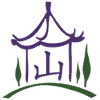[et_pb_section fb_built=”1″ _builder_version=”3.0.47″][et_pb_row _builder_version=”3.0.48″ background_size=”initial” background_position=”top_left” background_repeat=”repeat”][et_pb_column type=”4_4″ _builder_version=”3.0.47″ parallax=”off” parallax_method=”on”][et_pb_text _builder_version=”3.19.6″ background_size=”initial” background_position=”top_left” background_repeat=”repeat”]
Time heals all wounds. This old adage alludes to the body’s self-regulating function. Simply put, wellness is your birthright, and your body is always trying to heal itself.
When embarking on a journey of healing, we need to maintain perspective along several timelines. First and foremost, we must take stock in our present condition. What is going on right now? What is out of balance in my life? What stresses are affecting me? Am I getting enough sleep? Am I nourishing my body with nutrient-dense foods? Do I have a daily practice of detoxification? To any serious student of health and wellness, these questions call for deep reflection.
After contemplating your present condition and the myriad factors that may contribute to it, your thoughts should naturally drift back in time — not only to a period in your life when your health problems and stresses began but also to a time when you were free from those stresses (if such a time exists). The line of inquiry changes. What was going on in my life around the time I got sick? What have I done differently since then? Essentially, what went wrong and why?
Although this can be a painful exercise if a severe physical or emotional trauma lies at the root of your condition, it is unparalleled in granting perspective and realizing the breadth and depth of your current state of health. Truly, your present state of health is the sum total of years of thoughts and experiences that have led up to this moment. What you see in the mirror is not who you are but what you have become.

Reflecting on the past does not always bear fruit that leads directly to a treatment plan; at best, reflection offers a perspective that can empower a vision for the path ahead. This is where the power of reflection resides — not in the lamenting of the present or with regrets toward the past but in the hope for a better future.
Disease takes time to develop and begins when we are out of balance with nature and the rhythms of life. Healing is not just the removal of unwanted symptoms but a clarion call to return to a balanced life in service to a greater purpose.
To only seek the amelioration of symptoms is shortsighted. Symptoms are a message from your body. Because the body does not speak English, Mandarin, or any other human language, it must relate its needs in the form of symptoms that bring those needs to the forefront of the conscious mind. An experienced healthcare practitioner can help translate that message, but the onus is always on the patient to heed that communication and make positive, empowering changes.
Patience is an integral aspect of healing, with the body operating within laws of physics that shape time and space. For example, a study combining ultrasound, electrical stimulation, and laser therapy for tendon healing showed no particular benefit above and beyond each individual therapy; the therapies may even have counteracted each other.
It’s as if the body were an empty glass that needed filling. Each therapy could fill it, but after a certain threshold is reached, any additional therapy would overflow the glass. More is not necessarily better, and healing cannot be rushed.
Taking the time to heal means reflecting upon the current state of your life and creating a vision to bring yourself into the future. What do you have to live for? What is stronger than your fears and more inspiring than the obstacles that have brought you to this juncture in your life?
Leverage those thoughts and rally behind the fact that your body is always trying to heal. Listen deeply, act accordingly, and give it time.
[/et_pb_text][et_pb_text admin_label=”Text” _builder_version=”3.19.2″ header_font=”||||||||” background_color=”#d6d6d6″ border_radii=”on|1px|1px|1px|1px” border_width_all=”1px” border_color_all=”#255b39″ global_module=”2364″]
Author: Brandon LaGreca, LAc
Link to bio page.[/et_pb_text][/et_pb_column][/et_pb_row][/et_pb_section]
